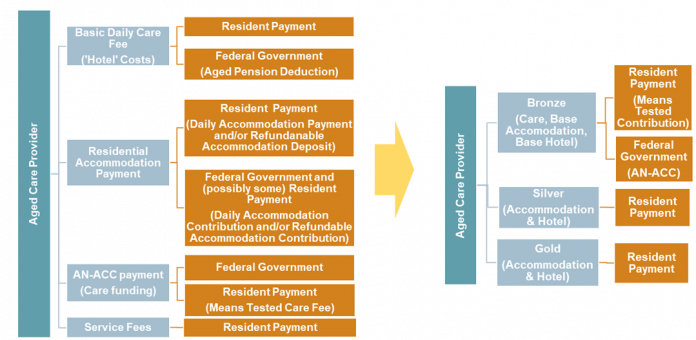
Queensland’s largest provider of residential and community aged care has recommended sweeping reform of the Australian National Aged Care Classification (AN-ACC) system, calling for a flexible and individualised model of choice for older Australians, rather than an institutionalised funding model.
UnitingCare Queensland’s (Blue Care) submission to the newly created Independent Health and Aged Care Pricing Authority (IHACPA) highlighted the current funding system, suggesting it is hard for ageing Australians to navigate.
The 58-page submission also calls for a range of temporary and other measures that include:
- Conduct an urgent review to consider separate funding uplifts for MMM1- MMM4 regional facilities; First Australian services in MMM1-MMM5 regions; CALD-focused facilities; severe behaviour cohort-focused facilities; and facilities in tropical areas.
- Incorporate other supplements into the AN-ACC pricing model (i.e. oxygen, enteral feeding, veterans and hardship).
- Create a temporary uplift mechanism for areas that face temporary economic changes e.g. mining boom in Darwin, Gladstone, and Broome.
The submission cites the Resource Utilisation and Classification Study (RUCS) findings (2019) from the national study that assessed the needs, costs and classifications of residential aged care, and the impact of COVID-19 that has not been factored into the findings, especially with respect to regional areas.
The submission points to the upheaval in the regions due to reduced immigration, social and demographic changes and the reduced ability to attract workers with previous incentives such as lower cost of living.
UnitingCare Queensland Group Executive for Aged Care & Community Services, Cathy Thomas, said systemic improvements must be made to residential aged care to simplify the funding system and ensure holistic care could be delivered to residents.
“At their time of need, consumers and their families are often in a situation of enormous stress and expected to make complicated financial decisions involving up to three different Government means-tests, a decision on upfront versus refundable deposits and services that are not easily comparable across providers,” Ms Thomas said.
“That is why Blue Care is advocating for a simple funding system that is transparent, while still providing access to universal care.”
Ms Thomas said that, by simplifying funding into a three-tiered system (Bronze, Silver or Gold – see main image), families could clearly compare providers for hotel and accommodation and separate other services.
“Families should have the right to make a choice based on like-for-like accommodation and services that best suit their needs,” she said.
“A single, transparent model would help residents and their families know what accommodation and hotel services they are getting and paying for, as well as the ability to compare multiple providers.
Simplicity would also exist for providers, who would only need to consider two sources of income – Australian National Aged Care Classification (AN-ACC) and resident payments.
Ms Thomas said that the AN-ACC care minute requirement should be part of resident outcome-focused measures such as Quality of Life, Clinical and Mental Health.
“A model based on resident outcomes would be a big step forward and, in the interim, IHACPA should supplement the care minute requirement with other outcome measures,” she said.
“The focus for decision-makers should be to make residential aged care choices clear for individuals and their families as they navigate one of the most significant events in their lives.
“At Blue Care, we want to be part of the solution and support our residents and their families in our mission – to live life in all its fullness,” Ms Thomas added.









